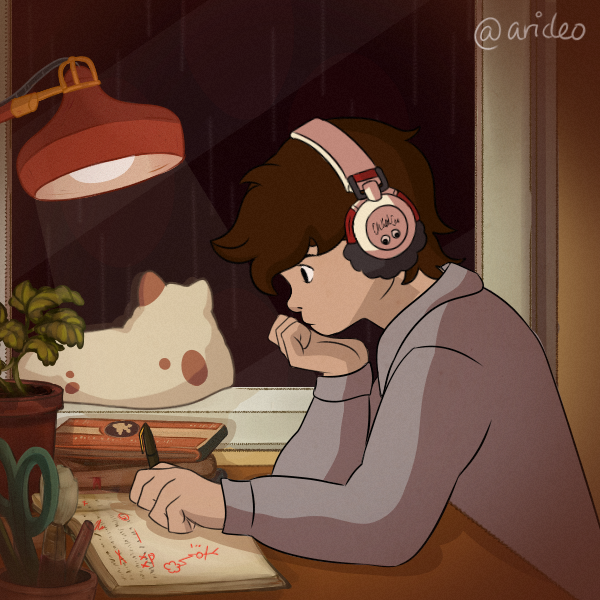Given how AI is already polluting the water of literary works, I’m likely never going to read a new book for quite some time, but will just pursue books before 2010.
Is 2010 a good cutoff?
There have always been bad books. There will always be good books. An arbitrary cutoff would only hurt myself.
I feel that bad books written by humans is different than books written by AI, and I feel the difference is mostly intent. A bad book might have been written with the best of intentions. A generated book, not so much
If you find value in the book, it doesn’t matter who wrote it. Now… author reputation is a good metric, if a AI is consistently pumping out good books… then its time to welcome the robot overlords.
Asking other people you trust for recommendations is a great starting point.
Yeah, but trusting people on the internet is now becoming harder than ever. Measuring the merit of someone’s words is no longer enough if they’re being paraphrased by some tool with a later intent to either spy on you or sell you products.
My Convoluted Logic: Sure I could reach out to my network of real people, but not many share the same interests as me. I feel that if someone online who expresses the same tastes as myself does turn out to be an AI, then the minimum amount of damage it could do to me in shilling a book would be one written by a human before the AI was conceived. This is what I mean by a minimum cutoff year
People you trust, in real life, is a good start
You could start by switching from strangers to friends.
Strangers on the internet have always been unreliable. AI just adds to the stench.
You could start by switching from strangers to friends
count the number of downvotes of this post submission plus my abrasive attitude in this comment and tell me how likely that is to happen
That just proves my point though
The down votes are from internet strangers
I’m an internet stranger
Friends would presumably be people who share in your interests and outlooks and so would be willing to help you figure such things out. At least mine are.
My friends are good fun people, but our interest overlap is quite small. I’ve historically found myself learning more about my interest from internet strangers, than from irl friends.
That’s pretty ridiculous. The overwhelming majority of writers won’t use AI at all. Are you going to somehow avoid all modern media?
No cut off. AI may have some books out there but not all. There will always be authors out there like Martha Wells, Sanderson, john Scalzi and even new debut authors all the time trying to write. Agree with other poster, you’re only going to miss out by limiting yourself
Hopefully we won’t need AI to write the 3rd Kingkiller chronicles book.
I gave that hope up years ago.
He backed himself into a corner and doesn’t want to admit that he can’t fit it all into a final book and/or just doesn’t enjoy writing that world or story anymore.
It would be nice if he released an outline or draft. He probably could have milked that since I know I’d have bought both a draft and the final book whenever he finished it.
If an author used AI as a tool and ended up with a good book, I have no issues with that. There is more to writing a book than spitting out one draft.
I don’t believe LLM AI in its current state is capable of writing a good book without heavy guidance and editing by a human, not to mention the world building, research, and story boarding that isn’t a part of putting final word on paper, so I’m not worried about it.
Book review sites have already been manipulated for years (Goodreads, owned by Amazon) so I moved elsewhere (Storygraph, Bookwyrm) before generative AI became a concern.
I think you’d be limiting yourself.
Maybe rely on community reviews more to check it’s not slop? Assuming they themselves aren’t slop.
Sigh…
I tend to stick to the same authors, so I trust them. I doubt Michael Connelly, or John Grisham will use AI and even if they do the book will still end up being good because they will use it as an inspiration rather than copy paste it into a book.
What’s your cutoff year for reading books?
No one else has a cutoff year. People have a cutoff quality and if an AI slop book doesn’t pass the quality gate, they’ll stop reading it.
WTF are you talking about.
tuoba gniklat uoy era ftw
If I may be a centrist about this.
OP is being silly wanting a year-cutoff. Geeenerally people who are whole-hog on AI are very proud of that and will yell about it to the four winds. And even if they didn’t, reputation is a real thing one can rely on for knowing who are the goodies and the baddies. (… though if they do feel that’s the only way… 2023. That’s the date. November 2023 is when ChatGPT became something the public could use, and the floodgates opened for businesspeople wanting to replace all artists with robots. Before that, Generative AI was used mostly either by scientists for research into AI itself… Or by internet dorks like me for shitposting. It wasn’t good enough for anything else either way.)
With that said, y’all are being unreasonable to them too: Literature is art, and when it comes to art, “I don’t like the way it feels” is more than enough reason to not want to engage with something. If OP says “I don’t want to touch anything AI related, I don’t care if it is quote-unquote good” then that should be a complete sentence, and require no belaboured justification whatsoever.
I’m wondering how people will be vouching new books aren’t LLM generated?
Most reputable editors are doing their best to weed out AI-written slop.
How do you feel about books by Alexandre Dumas? They are from long before AI. But… Dumas had a collaborator called Maquet, who came up with plots and did a big part of the writing. He was an ok writer, but not as good as Dumas. So their collaboration was like this: Dumas paid Maquet to produce quantities of ok stories for him. Then Dumas edited them to add his brilliant language and ideas, and Dumas got to take all the credit and glory.
If an AI can produce a book that takes all of human creativity and blows my socks away in weaving a tapestry of storytelling, then that’s great. But I don’t see AI being used that way. I see AI being used to sell products. I see AI writing a book that sucks you in the first half, and then moralizes you about the dangers of socialism in the second half whilst promoting Wolf Cola
(Interesting about Dumas though, I had no idea. It doesn’t ruin the few books I’ve read of his for me)
I guess it depends whether you prefer reading fiction for entertainment or nonfiction. If you’re reading fiction, does it matter if AI wrote or helped write it? Do you watch movies with CGI or only practical effects?
If you don’t want to give your money to an AI’s handler, utilize the library.
If you’re concerned a book will be bad or a waste of time, then adopt a personal policy of giving yourself permission to abandon reading the whole thing if you’re not enjoying it. I call this my Bristol Rule, because I was in Bristol (Tennessee) during the last time I forced myself to finish drinking a cocktail that tasted horrible, and I didn’t want to waste my money. I ended up with a VERY regrettable hangover. I then resolved to give myself permission to give up, not finish, throw away, walk away from, or generally discontinue something I’m just not enjoying, and accept the monetary loss and the lesson.







